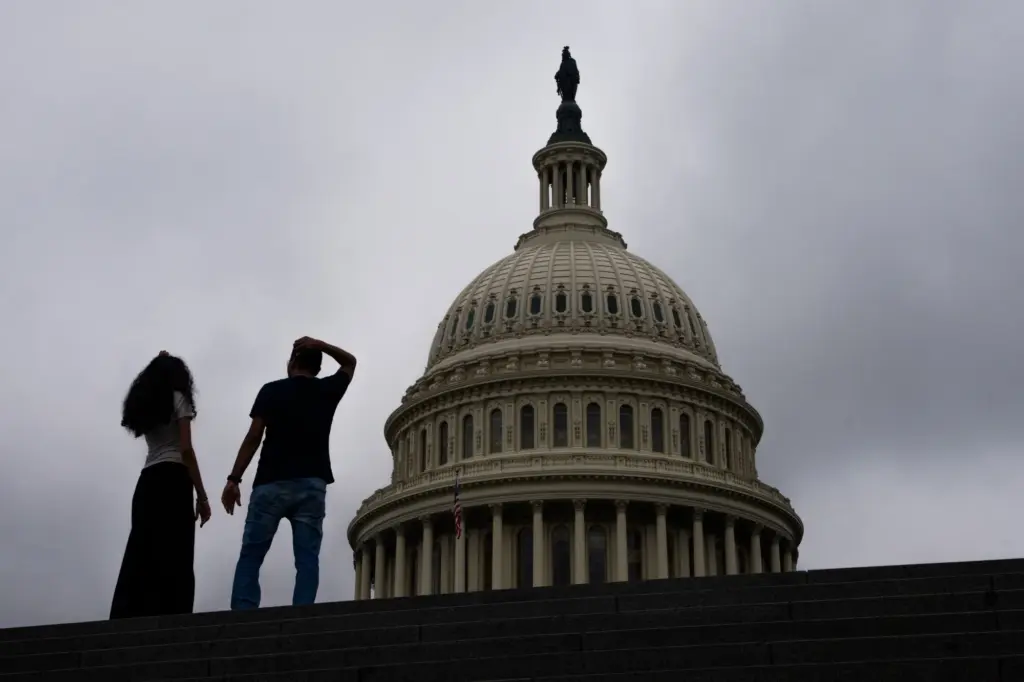In a move that stunned D.C. insiders, Senate Republicans have yanked proposed Medicaid cuts from Donald Trump’s signature tax-and-spending package—marking a sharp pivot that reshuffles the political math and fractures party unity.

Medicaid Cuts Vanish from Trump Tax Package
| Takeaway | Stat |
|---|---|
| Medicaid cuts removed | Senate Parliamentarian blocked provision |
| Projected debt increase | $3.3 trillion over a decade |
| Coverage loss estimate | 11.8 million people |
The Senate’s surprise Medicaid reversal is more than a procedural hiccup—it’s a glimpse into the GOP’s evolving strategy. As they try to thread the needle between MAGA populism and Senate institutionalism, the party’s future may hinge on moments just like this.
What Changed—and Why?
The Senate’s sudden reversal was triggered by a ruling from Parliamentarian Elizabeth MacDonough, who determined that the planned Medicaid reductions violated budget reconciliation rules. Under those rules, provisions that don’t directly affect the federal budget can’t be included unless they pass a 60-vote threshold—which this one didn’t. So, leadership had no choice but to strike the cut.
This single line-item removal, though technical on paper, has enormous implications. It erases roughly $700 billion in expected savings and further inflates the overall package, already flagged by the Congressional Budget Office (CBO) as a deficit bloater. “This isn’t about scoring points anymore—it’s about fiscal sanity,” Sen. Thom Tillis (R-N.C.) told The Daily Beast, blasting the bill’s financial framework as “a MAGA fantasy budget.”
The Numbers Are Brutal
According to the CBO, even without the Medicaid rollback, the current version of the bill would add $3.3 trillion to the national debt over the next ten years. At the same time, it’s expected to strip 11.8 million Americans of health insurance coverage, with rural hospitals and low-income families hit hardest.
These figures add fuel to the growing fire among moderate Republicans who argue that the bill—intended to turbocharge the economy—may instead wreck core safety nets and deepen the divide between red-state and blue-state America.
Party Rift Grows Wider
The rollback exposed sharp tensions within the GOP. Hardliners want steeper cuts to Medicaid, food assistance, and renewable energy credits. But Senate moderates, including Susan Collins (R-ME) and Lisa Murkowski (R-AK), have raised red flags.
They’re concerned not only about the human cost but also the optics of gutting essential services in an election year. “We can’t pass a bill that plays well on Newsmax but flops back home,” Murkowski said on background to reporters.
That pressure forced GOP leadership to walk a careful line—trying to appease Trump’s base while still honoring Senate procedure and moderates’ concerns.

What’s Trump’s Move?
The former president had demanded a completed bill before July 4, hoping to ride its passage as a campaign victory lap. But that timeline now looks shaky.
The Senate’s changes mean the bill must go back to the House—where MAGA-aligned members could revolt over the loss of spending cuts. Speaker Mike Johnson (R-LA) faces a test of leadership as he tries to shepherd a bill that no longer reflects Trump’s original blueprint.
A Tightrope Walk
This moment is especially telling for Senate Republicans. They’re trying to prove they can govern—deliver tax relief, streamline regulation, and uphold fiscal discipline—without appearing cruel or chaotic.
As someone who’s covered D.C. budget negotiations for over a decade, I can tell you: this walk-back isn’t just strategy. It’s a sign that Senate GOP leadership is finally listening—to both internal dissent and institutional rules. It’s the kind of recalibration that could define the party’s legislative style heading into 2026.
What Comes Next?
- Floor Amendments: Expect new proposals that could reinstate slimmed-down Medicaid changes or introduce fresh offsets to placate budget hawks.
- Moderate Watch: All eyes are on Senators like Mitt Romney (R-UT) and Bill Cassidy (R-LA), whose votes could make or break the next version.
- House Clash: With Senate changes in place, the House must now re-approve the bill—likely triggering a fight among far-right members.
FAQs
Why were Medicaid cuts removed from the bill?
The Senate Parliamentarian ruled the provision violated budget reconciliation rules, which require a 60-vote majority for non-budgetary measures.
How much does the bill add to the debt?
The CBO projects an increase of $3.3 trillion over 10 years, due to generous tax credits and lost Medicaid savings.
What happens to the bill now?
It returns to the House for approval. If changes aren’t accepted, the bill could stall or be sent to conference.






